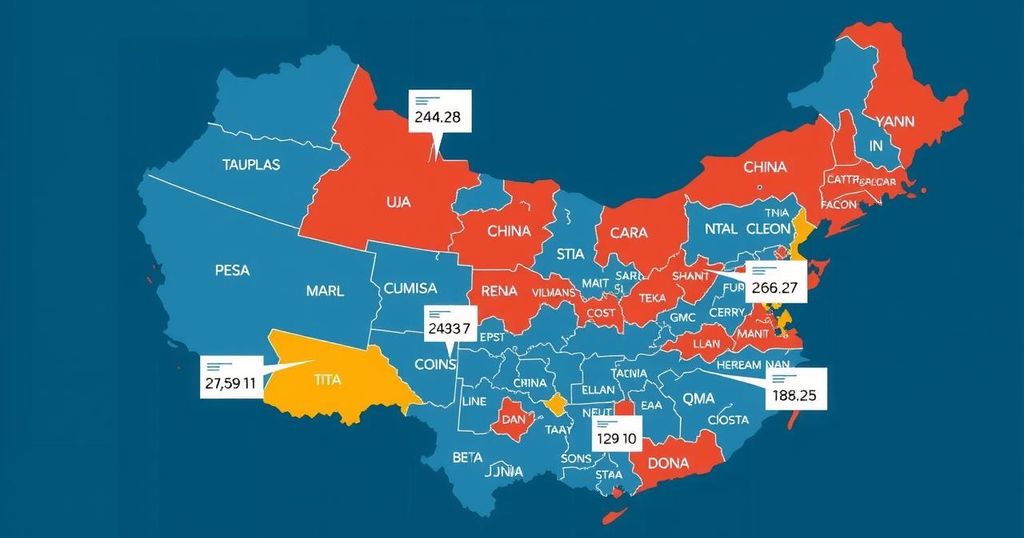Politics
AMERICA, ASIA, BEIJING, BEIJING DAILY, CAPITOL HILL, CCTV, CHINA, CNN, DC, ELECTION, FOREIGN POLICY, GLOBAL TIMES, LI SHUO, MEDIA COVERAGE, MEXICO, NATIONAL SECURITY, NORTH AMERICA, NORTHERN MARIANA ISLANDS, OCEANIA, UNITED STATES, US, US-CHINA RELATIONS, WASHINGTON, WASHINGTON, DC, WEIBO, WHITE HOUSE, XI JINPING
Isaac Bennett
0 Comments
Chinese Media Highlights U.S. Divisions Amid Election Tensions
Chinese state media has focused on U.S. political turmoil during the election, highlighting divisions and potential unrest. Reports have painted a picture of societal dysfunction in America, suggesting that relations with China will remain strained regardless of the election’s outcome. Public sentiment in China reflects skepticism towards U.S. intentions, perceiving a bipartisan commitment to constrain China’s influence globally.
As the United States anticipates election results, state media from China has capitalized on this moment to highlight the evident political schisms within America. Editorials and reports have depicted the election as symptomatic of profound societal discord and political dysfunction, particularly emphasizing fears of potential unrest post-election. Amid negative portrayals, Beijing’s media has downplayed the peaceful exercise of democracy in the U.S., asserting that relations with China are not expected to improve regardless of the election outcome. During the reporting, the Global Times described an atmosphere charged with apprehension, showcasing a stark depiction of boarded-up businesses and police presence in Washington, D.C. Furthermore, opinions surfaced on Chinese social media, suggesting a belief that the electoral process served more as a spectacle than a substantive matter about governance. This aligns with a prevailing sentiment in China that either candidate, should they win, would maintain a confrontational stance against China’s global aspirations. Observers note that past interactions have reinforced a consensus and skepticism toward U.S. relations, considering the strategies employed by both Republican and Democratic administrations.
Chinese state media has a long history of critiquing Western democratic practices, particularly targeting the United States, as it seeks to showcase the perceived weaknesses and failings of liberal democracy. Under Xi Jinping, this analysis has intensified, with a narrative that seeks to highlight internal divisions within the U.S. as a counterpoint to China’s own political model. This occurrence marks a critical juncture where China’s media reflects broader sentiments about post-election stability, U.S.-China relations, and how the narrative influences public perception among Chinese citizens. The context of U.S. political dynamics, characterized by significant partisanship, provides fertile ground for such commentary from Beijing, especially as it navigates its position on the global stage amid rising tensions with the U.S.
In summary, as the United States confronts its electoral outcomes, Chinese state media seizes the occasion to emphasize internal discord and potential turmoil within American democracy. These media portrayals resonate with a Chinese audience that views any future U.S. administration as likely to adopt a hostile stance toward China’s rise. Thus, regardless of the electoral victor, optimism for improved U.S.-China relations remains muted within China, stemming from the belief that strategic containment will persist irrespective of political leadership.
Original Source: www.cnn.com




Post Comment